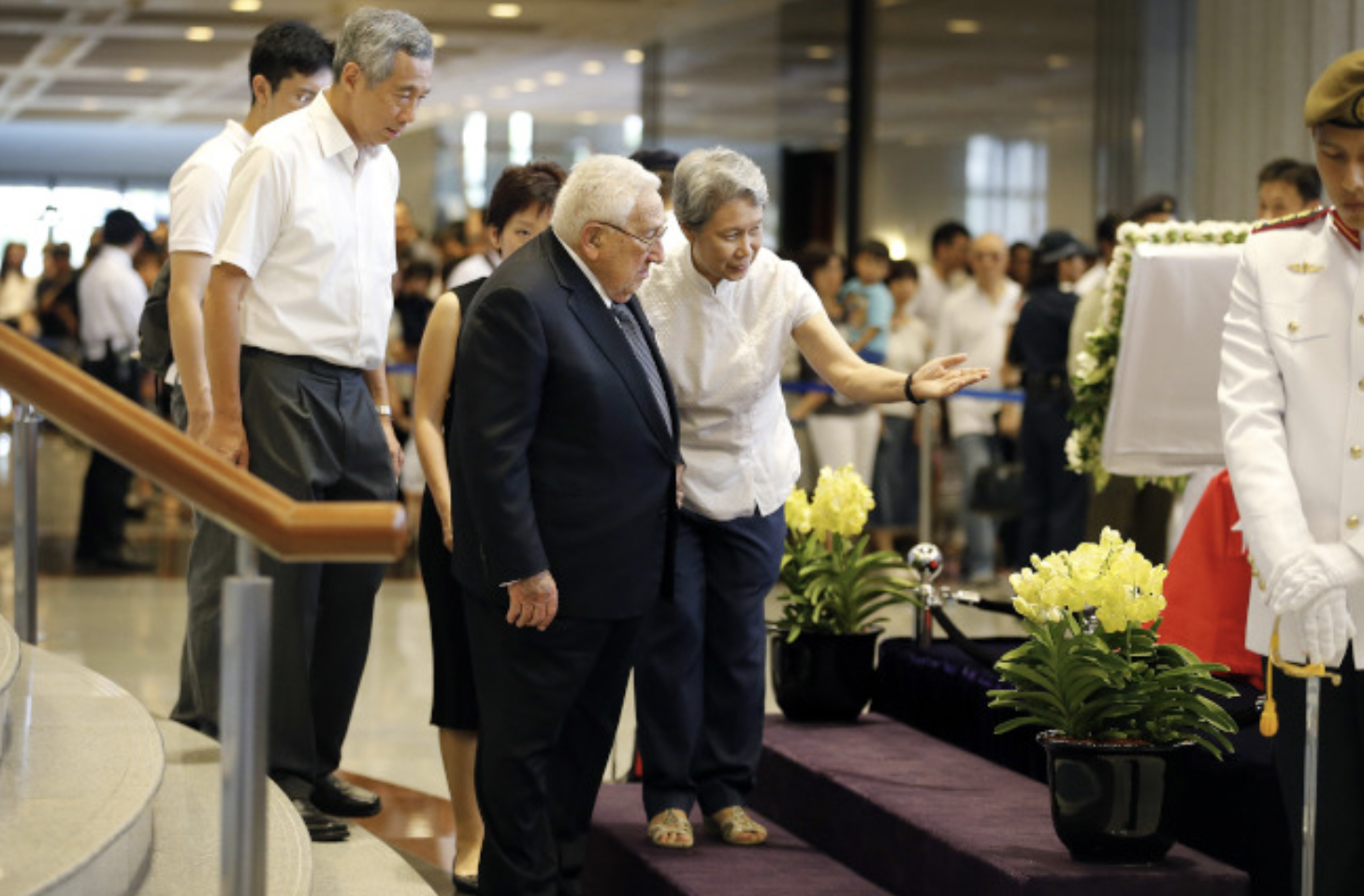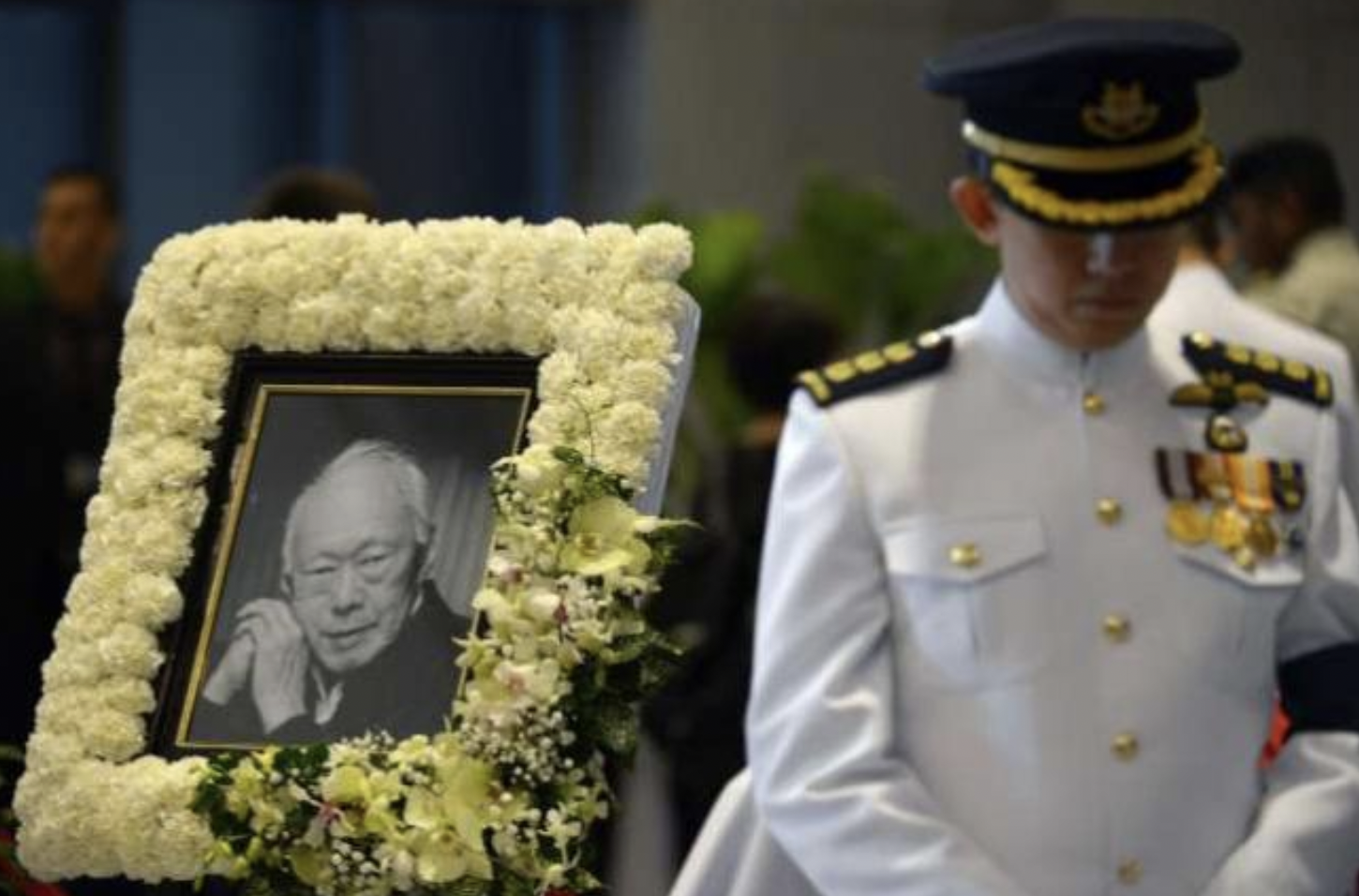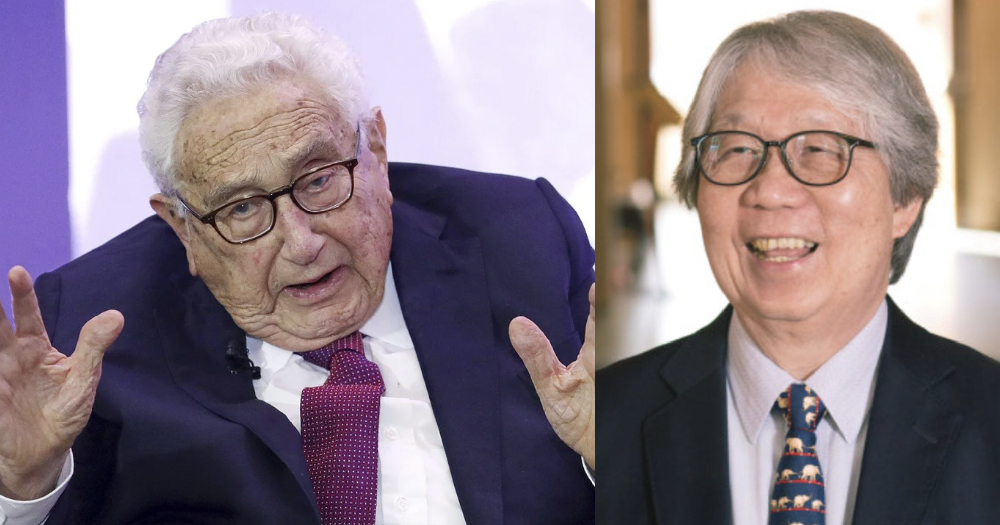Follow us on Telegram for the latest updates: https://t.me/mothershipsg
Singapore's ambassador-at-large Tommy Koh has highlighted certain mistakes in the chapter that detailed the late prime minister Lee Kuan Yew's leadership of Singapore in former U.S. Secretary of State Henry Kissinger's latest book.
In a Facebook post on July 23, Koh said it's "a great compliment" to Lee and to Singapore that he is included and analysed in the book, alongside five other world leaders that Kissinger had known personally -- Konrad Adenauer of West Germany, Charles de Gaulle of France, Richard Nixon of the U.S., Anwar Sadat of Egypt and Margaret Thatcher of Great Britain.
These leaders, according to Kissinger, who turned 99 on May 27, had found themselves in difficult geopolitical situations, but were able to "transcend circumstance" and bring vast improvements to their countries.Although Kissinger has not held office since 1977 when he stepped down as U.S. secretary of state, he has practically advised all U.S. presidents since Richard Nixon, making him someone whose advice is hard to ignore, even though not all might agree with him.
Spotted some inaccuracies
In his post, Koh said Lee and the Nobel Peace Prize winner admired each other mutually.
Nevertheless, he spotted some inaccuracies in the chapter on Lee, and pointed them out.
These errors included one that said Lee received a Queen's scholarship to study law at Cambridge University, when it was his future wife at that time, Kwa Geok Choo, who received the scholarship.
Kissinger also wrote that prior to achieving the scholarship, Lee was "perpetually anxious" that Kwa and a top student from another school would take the first two places, which would result in him remaining in Singapore as only two students in the Straits Settlements were awarded the scholarship each year.Koh also refuted what Kissinger implied about Singapore not being a member of the Non-Aligned Movement.
The sentence in question reads, “While most of his peers adopted a posture of non-alignment in the Cold War – which in practice often meant de facto acquiescence in Soviet designs – Lee staked his geopolitical future on the reliability of the U.S. and its allies.”
Having joined in 1970, Singapore was part of the Non-Aligned Movement, which is a forum of countries which refused to pick a side between the U.S. or the Soviet Union or with any major power bloc.
Koh also took issue with Kissinger's description of Lee as an "autocrat" and not a "democrat", saying Lee's attitude towards democracy was probably close to what former UK Prime Minister Winston Churchill said about democracy being "a terrible form of government but it was better than all the others".
Koh was probably talking about the part in the chapter which said that Singapore remains "an authoritarian state", and that "authoritarianism was "a means to an end".
Singapore has "free and fair" elections: Koh
He further expressed his shock when Kissinger wrote, "Elections in Singapore are not democratic, but they are not without significance."
He also quoted a line from the book which says, “Can a better balance be devised between popular democracy and modified elitism?”
In the book, Kissinger wrote that elections in Singapore provide a different function than that of most liberal democracies, and serves the ruling party mainly.
"While in democracies discontent expresses itself through the possibility of electoral change, in Singapore Lee and his successors have used voting as a performance evaluation to inform those in power of the efficacy of their actions, thereby giving them the opportunity to adjust their policies depending on their judgment of the public interest.”
Koh disagreed, saying, "With great respect to Dr Kissinger, I would say that while Singapore may not be a liberal democracy, our elections are free and fair and are democratic."
"Every citizen has a right to vote. The ballot is secret. We are given a choice of several political parties."
It is likely that Kissinger had written the book with the help of several collaborators who contributed to background research, as he had acknowledged in his book.
Lee was a prophet and a statesman
In the book, Kissinger had high praise for Lee as "both a prophet and a statesman", which in Kissinger's view, are the two "ideal" categories of leaders.
He described Lee as a leader who "shaped the evolution of an impoverished, multiethnic port city at the edge of the Pacific, surrounded by hostile neighbours".
"Under his tutelage, Singapore emerged as a secure, well-administered and prosperous city-state with a shared national identity providing unity amid cultural diversity."
In addition, Kissinger credited Lee as "one of the few leaders respected on both sides of the Pacific for both his insight and his achievements".
"Starting his career by developing a concept of order for a tiny speck of an island and its neighbourhood, he spent his last years appealing for wisdom and restraint on the part of the countries capable of wreaking a global catastrophe. Though he would never have made such a claim for himself, the old realist had assumed a role as world conscience.”
Close friends with Lee Kuan Yew
Born a few months apart in 1923, Lee and Kissinger were close friends who frequently exchanged their views on international affairs.
According to Prime Minister Lee Hsien Loong, ever since they first met in 1967 when Lee was taking a sabbatical in Harvard and Kissinger was still a professor, they kept close with each other.
Lee stayed in Kissinger's house when he visited the U.S, and the two met many times over the course of their lives. They were such close friends that there was "never a month when [they] weren't talking to each other", Kissinger said.
At the time of Lee's passing in 2015, Kissinger attended Lee's state funeral, and wrote in his eulogy that being close personal friends with Lee is something he considers "one of the great blessings" of his life.
"A world needing to distill order from incipient chaos will miss his leadership," he wrote.
 Image via Getty Images
Image via Getty Images
 Image via Getty Images
Image via Getty Images
PM Lee, who has known Kissinger for over 30 years, continued to meet with him during his time in office.
Foreign Affairs Minister Vivian Balakrishnan has also met with Kissinger a couple of times and exchanged views with him.
Dr Henry Kissinger - the ultimate doyen and mentor on geopolitics. As always, it was a deep honour to meet him again for an insightful and in-depth conversation pic.twitter.com/vxUdwljaGT
— Vivian Balakrishnan (@VivianBala) September 22, 2021
Top image adapted via Getty Images & Harvard Law
If you like what you read, follow us on Facebook, Instagram, Twitter and Telegram to get the latest updates.
